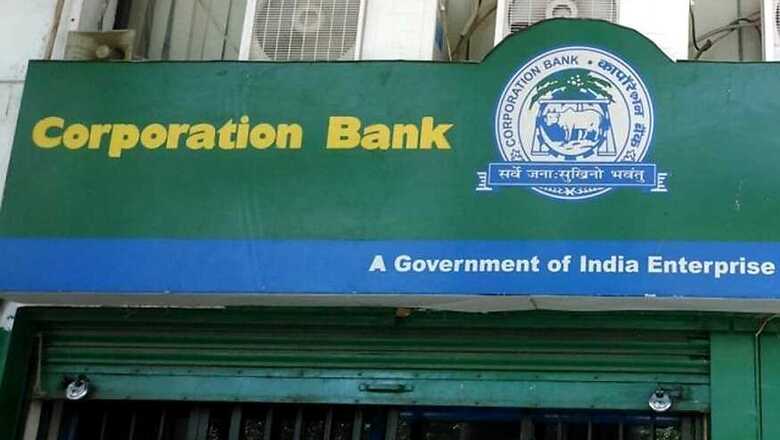
views
Corporation Bank shares fell as much as 4% in early trade on Tuesday, i.e. September 3, after finance minister Nirmala Sitharaman announced that the lender, along with Andhra Bank, will be amalgamated with the Union Bank of India under the government’s mega merger plan for public sector banks (PSU banks).
The stock, however, later pared losses to trade at Rs 18.60, down 1.3%, at 9:33 am, after hitting an intra-day low of Rs 18.10. Meanwhile, shares of Union Bank of India were down 3.6%, while those of Andhra Bank rose 2%.
The combination of Corporation Bank and Andhra Bank with Union Bank of India will create India’s fifth-largest public sector bank with Rs 14.59 lakh crore business and 9,609 branches. Moreover, since all three banks share a common core banking software (CBS), Finacle, integration and realisation of gains would be quicker.
Corporation Bank said that a meeting of the board of directors will be convened in due course to consider its amalgamation with Union Bank of India.
The bank informed the stock exchanges on Saturday that it has received a communication from the finance ministry stating that the alternative mechanism, after consultation with Reserve Bank of India, has decided that Union Bank of India, Andhra Bank and Corporation Bank may consider amalgamation of Andhra Bank and Corporation Bank into Union Bank of India.
Sitharaman on 30 August unveiled a merger plan of 10 PSU banks into four to create fewer and stronger global-sized lenders amid a slowdown in economic activity.
The four new sets of banks would be created after merging the following banks — Punjab National Bank, Oriental Bank of Commerce and United Bank of India; Canara Bank and Syndicate Bank, Union Bank of India, Andhra Bank and Corporation Bank; and Indian Bank and Allahabad Bank.
Indian Overseas Bank, UCO Bank, Bank of Maharashtra and Punjab and Sind Bank will continue as separate entities due to their strong regional focus, while Bank of India and Central Bank of India will also operate separately.
While the move is aimed at making Indian banks globally competitive, analysts raised questions over merging the weak banks with strong ones at a time when asset quality concerns linger.

















Comments
0 comment